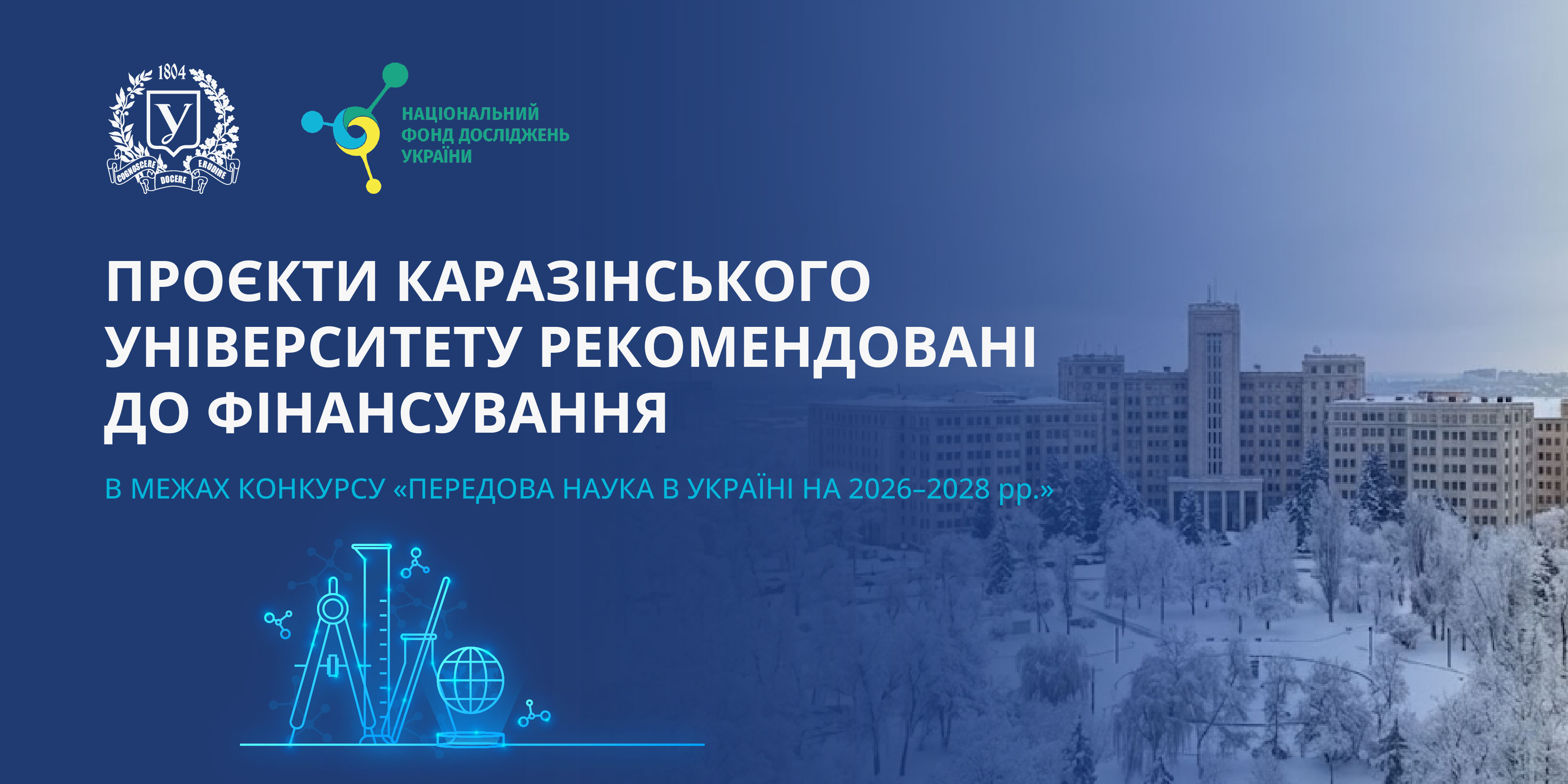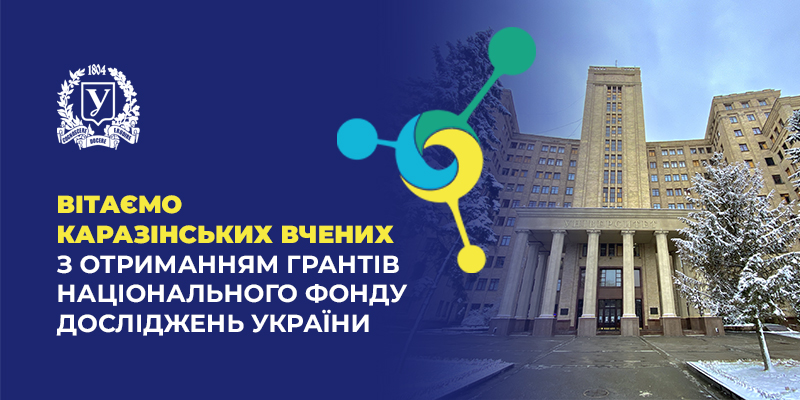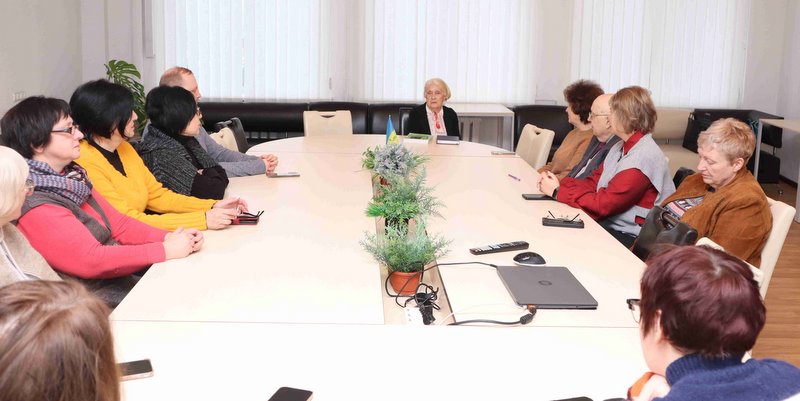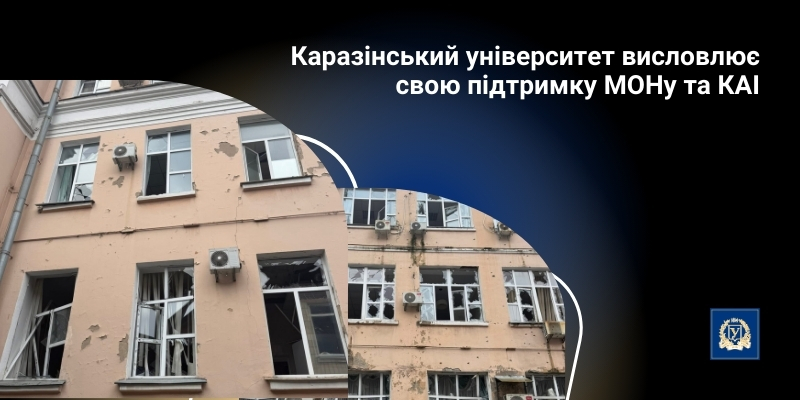Scientific Horizons of Karazin University: New Space Missions and Fascinating Research Results in Dialogue with Graduate Student Valeriia Rychahova
.jpg)
Astrophysicist Valeriia Rychahova, currently awaiting the start of her third year in the PhD program, is actively working on material for her dissertation while also preparing for conference presentations. Her research is dedicated to the physical and dynamic properties of asteroids belonging to the main belt families. As part of her dissertation, she is working with data from the Dawn space mission, which targeted the asteroid 4 Vesta and the dwarf planet Ceres.
.jpg)
"My work mainly involves processing images of the surface of Vesta obtained during the mission, searching for areas with anomalous optical properties, and interpreting them. To identify these areas, we use phase and colorimetric methods developed by Kharkiv astronomers to process and analyze lunar surface images.
In practice, these methods have proven to be successfully applicable to other airless bodies, such as Vesta and Ceres, yielding interesting, sometimes even surprising results. Recently, my focus has been on analyzing images of Vesta’s regions that contain patches of a substance called 'light mantle,' currently interpreted as impact melt formed during the creation of the giant Rheasilvia impact basin at Vesta’s south pole. This substance generally exhibits significant absorption in the blue part of the spectrum, slightly higher albedo compared to the surrounding areas, and a deeper absorption band of the mineral pyroxene. However, more importantly, the population of spots is homogeneous in size and shape, with spots showing varying degrees of edge sharpness and clarity. We are working on classifying the spots by their morphology and optical properties. The data we have already obtained suggests that the nature of the spots is likely not explained by a single hypothesis of impact melt.

However, the war has undoubtedly impacted the work of both experienced Ukrainian astronomers and students and PhD candidates who are just beginning their scientific journey. For Kharkiv astronomers, the full-scale invasion was particularly painful due to the occupation of the Chuhuiv Observatory by Russian invaders. The consequences of the occupation, which lasted from March to September 2022, are dramatic: key instruments and electrical equipment were destroyed, stolen, or damaged, and infrastructure on the station’s grounds suffered. The dome of the pavilion housing the AZT-8 telescope was pierced in several places by debris. Fortunately, the telescope itself remained intact, but the costly CCD cameras, which were the light receivers, were destroyed—shot as targets. These criminal acts made it impossible to continue scientific observations at the station or to conduct student practices, which had served as a center of science and education for 60 years, enabling high-quality research at national and international levels.
Therefore, we are currently mobilizing all efforts to maintain a high level of research using data from international surveys and space missions that are publicly available, and we are doing everything possible to restore the station and revive and popularize astronomy in Ukraine."
Ms. Valeriia, where are you currently, and what challenges and problems does a young scientist face today?
When the full-scale invasion began, my family and I were in Kharkiv, but we spent most of 2022 outside the city, in the village of Skovorodynivka, known for its destroyed museum. It was there that I defended my master’s thesis online. Similarly, I took my entrance exams for the PhD program afterward. However, in between, I had to travel. Since December 2023, I have been steadily in Kharkiv, and like any Kharkiv resident, I face problems caused by the full-scale invasion. Shelling and limited power supply cause discomfort, lead to additional emotional stress, and sometimes exhaustion. But these will never be an obstacle to continuing my work, as the thirst for knowledge and the pursuit of dreams is the driving force that has led humanity along the path of development throughout all times, even the most challenging.
However, apart from global external problems, there are specific issues inherent to each field. In astronomy, for example, these include problems related to the quality and diversity of observational material. Some research, which is undoubtedly interesting and promising, could develop at a completely different pace if scientists could instantly obtain, for example, the physical and dynamic parameters of bodies with sufficient accuracy for a specific task or have data on a space object obtained by different methods. In my case, having higher-resolution images of Vesta or samples of the surface layer of regolith from certain areas of the asteroid would be a significant enhancement. This would greatly aid in a more accurate interpretation of the behavior of regions with anomalous spectral properties.
Sometimes, to obtain such additional information, one must be patient and wait for the implementation of the relevant space mission or the development of technologies that can facilitate the process of acquiring information or work on methods that allow for a different perspective on already available data. The work of an astronomer is undoubtedly about choosing to be patient and facing tasks that do not have quick and obvious solutions. At the same time, it is also about choosing to always be in the process of learning, keeping up with the latest news and achievements in science, and combining critical thinking with a readiness for new, unconventional ideas and solutions.

What does it mean to you personally to be a scientist in this challenging time for the country?
First and foremost, it means supporting domestic fundamental science. Research in astronomy is not a popular field for several reasons, including limited funding and a general lack of public awareness about such research in Ukraine. The beginning of the full-scale invasion, as I mentioned earlier, was a particularly painful blow, taking away the Chuhuiv Observatory from Kharkiv astronomers. Therefore, I strive to be part of the astronomical scientific community, which has been forming for many years and includes outstanding scientists whose work has made significant contributions to the development of astronomy on a global level. Preserving what we have and multiplying it—that is our motto right now.
Moreover, I am interested in popularizing astronomy and sharing with the general public the mysteries of the universe and the secrets associated with this field. Astronomy is fascinating and exciting, but at the same time, it is the painstaking work of many generations and the hope of humanity for a better understanding of the universe, of which we are a part. In the future, I want to make my contribution to this understanding.
What is your most significant achievement of the last year?
Over the last year, I had the opportunity to participate in wonderful scientific events and conferences where I met many interesting people. Communication is an essential component of my work process, so the opportunity to work alongside experts in my field and learn from their experience is invaluable. For me, a significant achievement was a closer integration into the scientific community, a process previously hindered by the pandemic and the start of the full-scale invasion.
What supports, motivates, and inspires you?
Nature. For me, there is no more pleasant way to spend free time than visiting forests and bodies of water, so one of my favorite places in Kharkiv has been and remains Sarzhyn Yar. I am mainly motivated by the successes and achievements of my senior colleagues and mentors. When you have a worthy example before you, you realize that you can achieve the same — it just takes perseverance and a continuous drive toward your goal. Experience is something that is gained through countless attempts, mistakes, and retries. I am inspired by people who face challenges with a smile, turning each obstacle into a new source of strength.

A favorite quote?
"Ecce Homo"—this phrase has acquired many shades and meanings for me in recent years.
Plans and dreams?
The greatest dream for me, as for many of us, is the earliest possible Victory. I also hope that domestic astronomy will continue to develop. And I also hope that someday I will see a bustling crowd of students in my home university, hurrying carefree to their classes.
As for my immediate plans, I intend to successfully defend my dissertation and continue my research, as well as start working on projects related to the popularization of astronomy and education.




.png)






